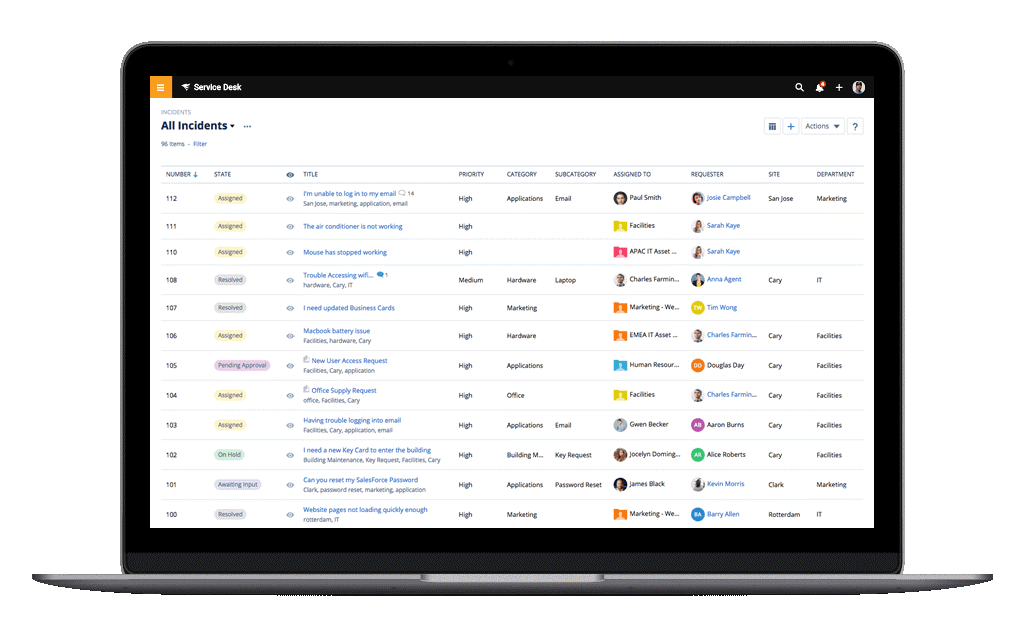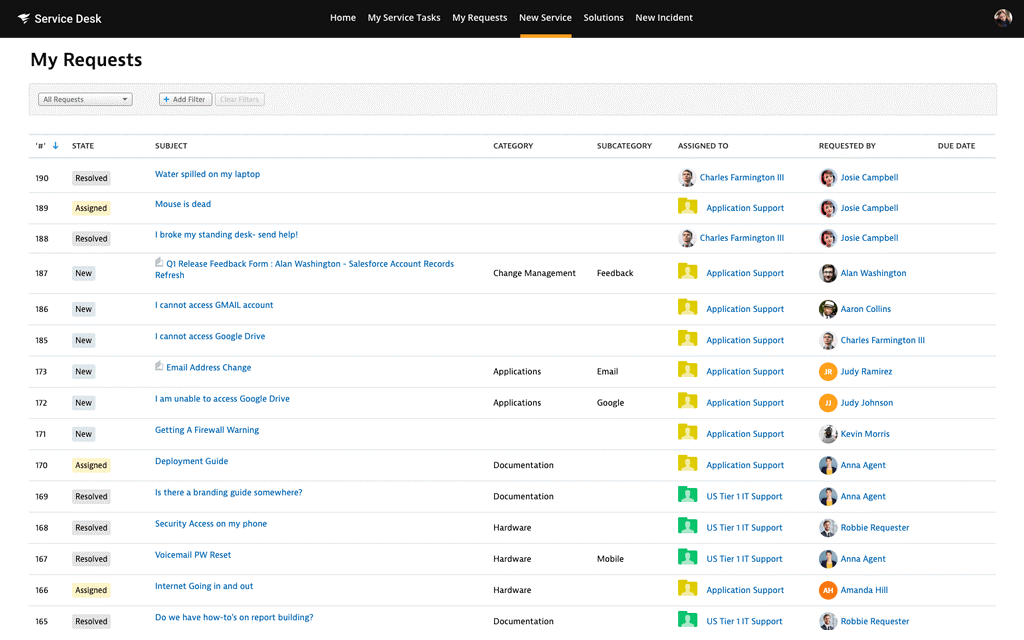Today, most organizations have significantly transformed their support operations modern help desk solutions. Many cloud-based help desk solutions offer a higher degree of automation with increased efficiency in the grouping, triaging, assignment, and tracking of IT service tickets. With these solutions, organizations can reduce manual workloads on their service desks. However, service desk agents still need to get their hands dirty, communicate with the end user, collaborate and understand the root cause of issues, and provide effective resolution. Teams are expected to meet their Service-Level Agreements (SLAs), maintain professionalism, and ensure customer satisfaction with faster resolution of issues. As a result, managers lookout for a certain set of skills to select help desk agents in their organizations. This article lists the top help desk agent skills required to be part of a support team.
Technical Skills

IT help desks deal with all sorts of service requests and technical issues, which are prioritized and sent to team members at different levels of support. While most routine issues are resolved at level 1, organizations need level 2 support to solve complex technical issues. Technical skills also vary depending on the organization’s IT ecosystem, as traditional enterprise setups are different from modern distributed, hybrid environments. Moreover, organizations today have to support a large number of remote users, who work outside of enterprise firewalls but still require secure access to enterprise resources. As a result, help desk agents need technical skills to configure applications and monitor/provision resources remotely, while following all procedures for security and connectivity as per their organization’s policies. Organizations also prefer people with cross-functional experience or those who have worked in development and operations teams. As most organizations are constantly upgrading their IT ecosystem, help desk agents need to understand new technology and learn quickly at the job.
Communication Skills

Help desk agents should have excellent communication skills. They should be able to empathize with the customer, listen and understand their concern, ask the right questions to get to the root cause of the problem, and provide the proper response on all occasions. While help desk teams usually take remote access to resolve technical issues, sometimes when it’s not possible, they have to guide end users to perform troubleshooting steps with patience. On such occasions, they have to work with the end user, gauge their willingness to spend time troubleshooting, and keep them engaged during the call. They might need to educate the end user about certain best practices and routine maintenance tasks and encourage them to explore self-service resources, product documentation, and user guides. At times, help desk agents might also need to spot opportunities for upselling and cross-selling. They should be able to tactfully qualify such leads or pass them to the sales team based on their interaction.
Multitasking Ability
A help desk agent should be able to work across different screens, document different steps as per the company’s policies, and if required, interact with the customer, all at the same time. Such multi-tasking abilities are an essential requirement in fast-paced environments, where help desk agents need to work under strict SLA deadlines. It also becomes a critical requirement during an outage or peak hours. While most agents can catch up and improve multitasking capabilities over a period, it can be taxing for certain people. Some organizations have open floor plans, where support teams have to work in noisy and chaotic environments. Agents need to maintain high concentration levels, prioritize and organize their work, and ensure high efficiency under such conditions, which can be difficult for first timers.
Teamwork Skills

A help desk agent needs to not only perform tasks but should also be ready to help other team members. Modern enterprise environments often require people with different skills and expertise to collaborate and solve complex issues together. Many times, lack of camaraderie in a new team prevents it from achieving its best. It’s important for team members to understand each other’s strengths and weaknesses. When stuck, instead of reinventing the wheel and doing exhaustive research on their own, agents should be ready to take help from other team members and learn from their seniors. Despite it being a known and documented issue, organizations can’t implement processes for harnessing tribal knowledge. As a result, senior team members are often able to perform their tasks quickly with heuristics and various tricks of the trade, while new team members struggle to keep up. It’s up to agents to develop rapport with their seniors and subject matter experts and try to acquire as many tips and tricks as possible.
Conscientiousness
This is one of the big five personality traits, and organizations prefer people scoring high on this trait, regardless of the domain and business function. Some organizations include psychometric tests in their selection procedures to assess their candidates’ personality traits. A person scoring high on conscientiousness is considered highly reliable. The person is likely to follow all rules and procedures carefully, be organized and efficient in performing tasks, and meet deadlines and commitments without fail. The person will likely plan work in advance, account for dependencies, and respond to contingencies better. You can cultivate habits and practices to help improve conscientiousness.
Conclusion
If you’re looking to join an IT service desk, you can evaluate yourself on the five help desk agent skills mentioned in this article. Some organizations may ask for ITIL/ITSM certification as a mandatory requirement. However, it’s not always a rule, and if you have some IT experience, you can easily build your career as an IT service desk agent.


